




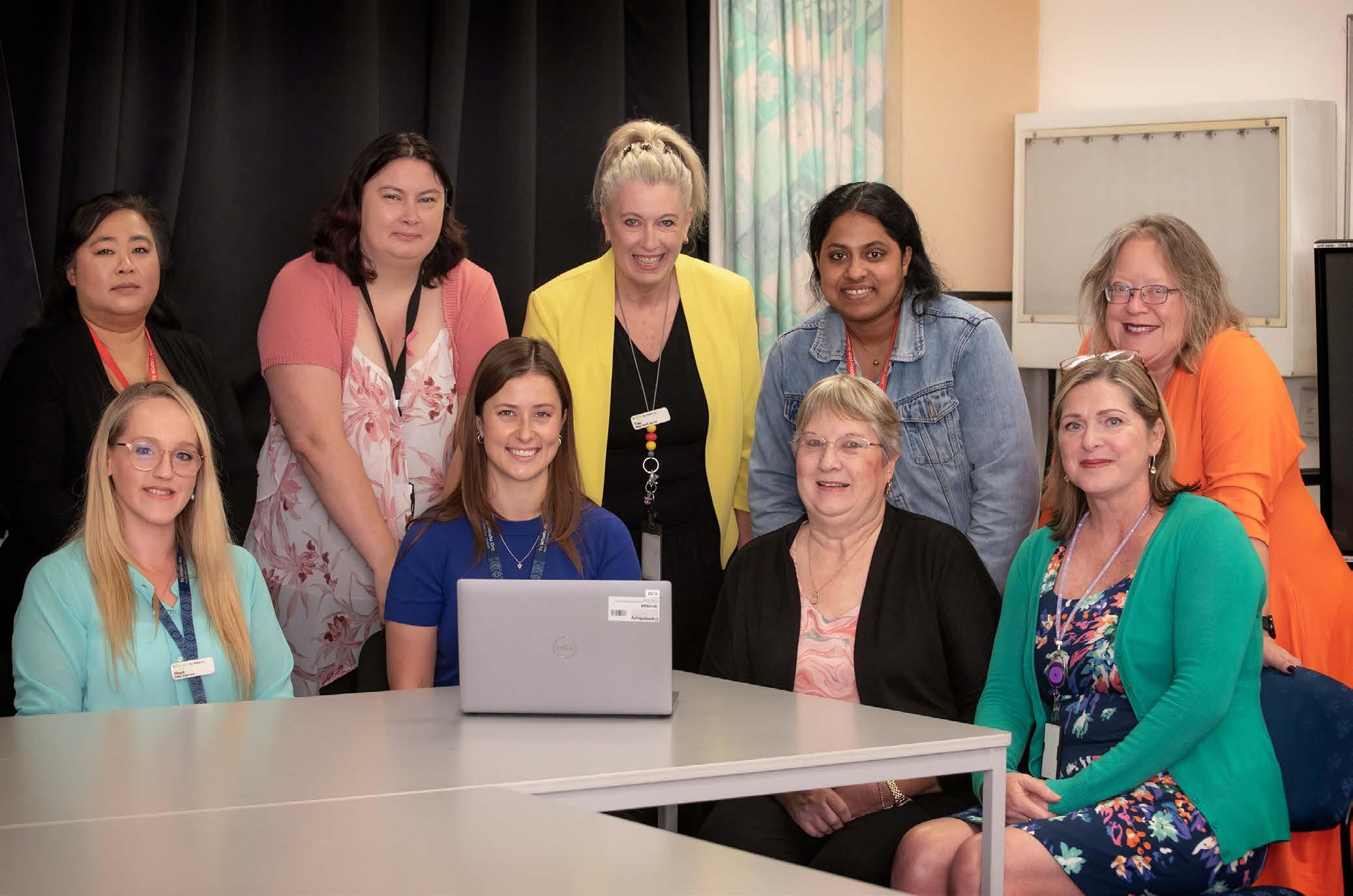


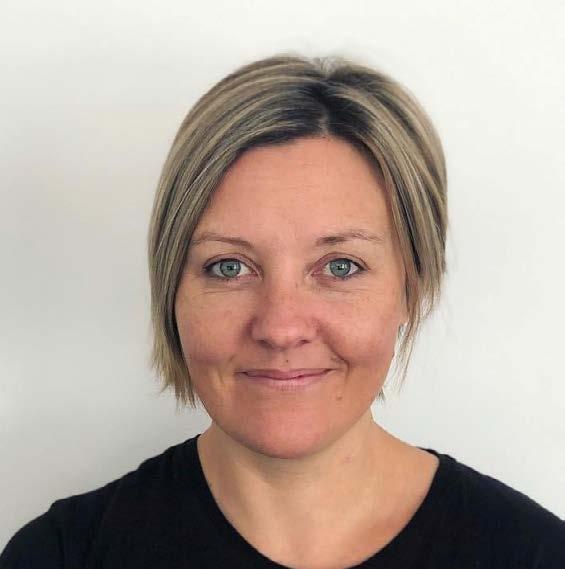
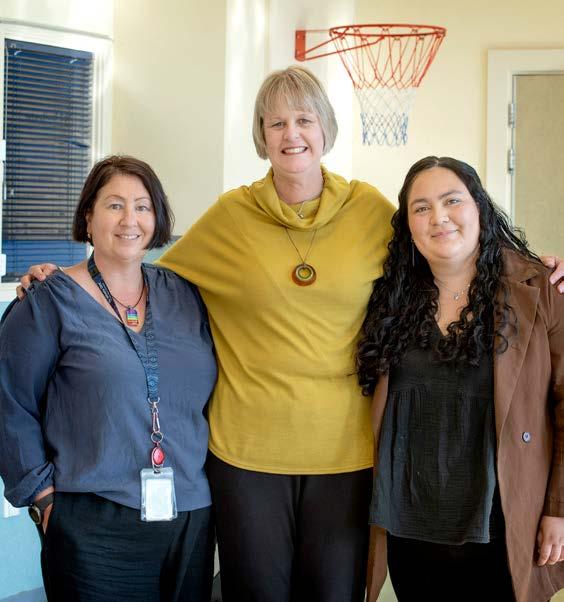


Kupu Arataki – Introduction... pg 3-7
Ā mātou tāngata – Our people
› Leading change to benefit patients... pg 8-9
› Celebrating our administration stars... pg 10-15
› Remembering Emeritus Professor Robin Fraser ONZM ...pg 16
› One minute with… Melissa Woolley, Social Worker, Cardiology and Cardiothoracic, Christchurch Hospital... pg 17
Whakamihi – Bouquets... pg 18–19
Ā mātou korero – Our stories
› The gift of time from one family to another ... pg 20
› Immunisation clinics boost vaccinations for tamariki... pg 21-22
Pānui – Notices... pg 23–26

This week is Administrative Professionals Week – and we’re paying tribute to all the administrators, ward clerks, medical secretaries, receptionists, telephonists, secretaries, booking administrators, clinical records officers, payroll officers, clinical coders, personal assistants, data entry operators and many other administration stars who keep Health New Zealand | Te Whatu Ora ticking.
In this Pānui we profile some of the many Waitaha Canterbury administrators and teams who work behind the scenes, helping patients and their whānau, supporting clinicians, colleagues and departments, and keeping services operating smoothly.

Read about some of our local Waitaha Canterbury admin stars on page 10.
A reminder that free flu vaccinations for Health New Zealand | Te Whatu Ora staff are now available.
Vaccination clinics for kaimahi are being held at Ashburton, Burwood, Christchurch, Hillmorton and The Princess Margaret hospitals and various West Coast workplaces.
For details and updates on clinics including locations and times, staff can check the internal staff email, or on PRISM.
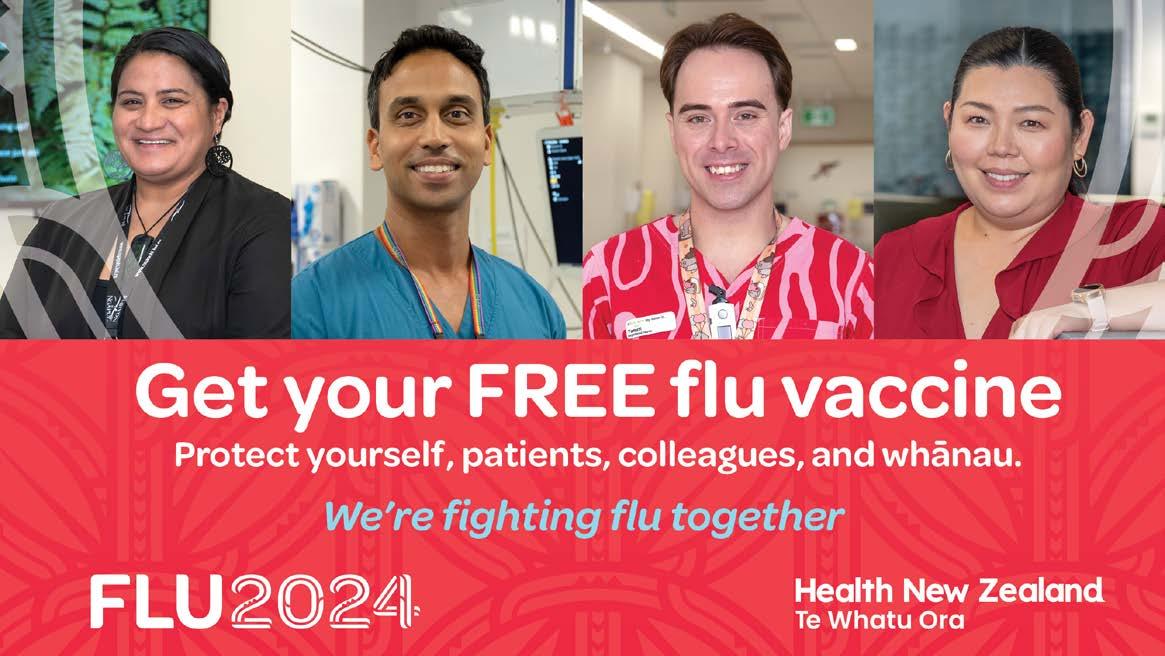
More than 20,000 Health New Zealand | Te Whatu Ora staff nationwide have already completed the Ngātahitanga Pulse Survey which is open until later this week.
It takes less than five minutes to fill in, is completely confidential, and is open to all Health NZ kaimahi. This includes casual staff, contractors, and volunteers.
You can access the survey through an email link sent to staff, or alternatively by using a QR code or filling in a paper survey at your location. Ask your manager if you need a printed survey to complete.
If you need more information or support, talk with your manager in the first instance, or visit the Pulse Survey Information Hub on Te Haerenga.


Welcome to new Interim Regional Director Te Waipounamu Ngaire Buchanan, who joins Health New Zealand | Te Whatu Ora this week. Ngaire will fill the position through to the end of September 2024, providing leadership and operational oversight to the Te Waipounamu region while recruitment is completed for a permanent appointment.
Ngaire is an experienced healthcare leader bringing with her more than 30 years’ experience of working in large health care organisations in senior management roles both in Australia and New Zealand.
Since 2018, Ngaire has been working for South Australia Health as CEO of Limestone Coast Local Health Network. Before joining South Australia Health, she worked as Chief Operating Officer for St Vincents Health Network in Sydney. Ngaire also spent many years with Auckland District Health Board where she worked in a variety of senior roles.
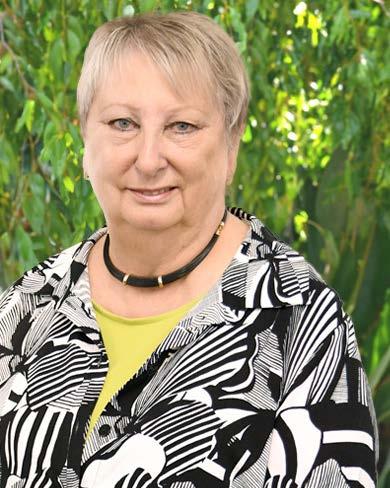

This week (24-30 April) is World Immunisation Week, promoting the use of vaccines to protect people of all ages against disease – allowing children, adults, whānau and communities to live happier, healthier lives.
As we head towards winter, health providers across Waitaha Canterbury are gearing up to promote childhood immunisation, influenza, measles, whooping cough and COVID-19 vaccinations –and we’re encouraging people to make sure their vaccinations are up to date.
› Book a vaccine for yourself, a family member, or a group at bookmyvaccine.health.nz or call the Vaccination Healthline on 0800 28 29 26 –available from 8.30am to 5pm Monday to Friday, for information, advice, and support to book a vaccination. Calls are free, callers can opt to speak with a Māori clinician, and interpreters are available. Alternatively contact your healthcare provider, pharmacy, or GP.
› The latest information about immunisation is available on the Health NZ, Te Whatu Ora website: Immunisations | Health Information and Services
Some key things to remember about immunisation:
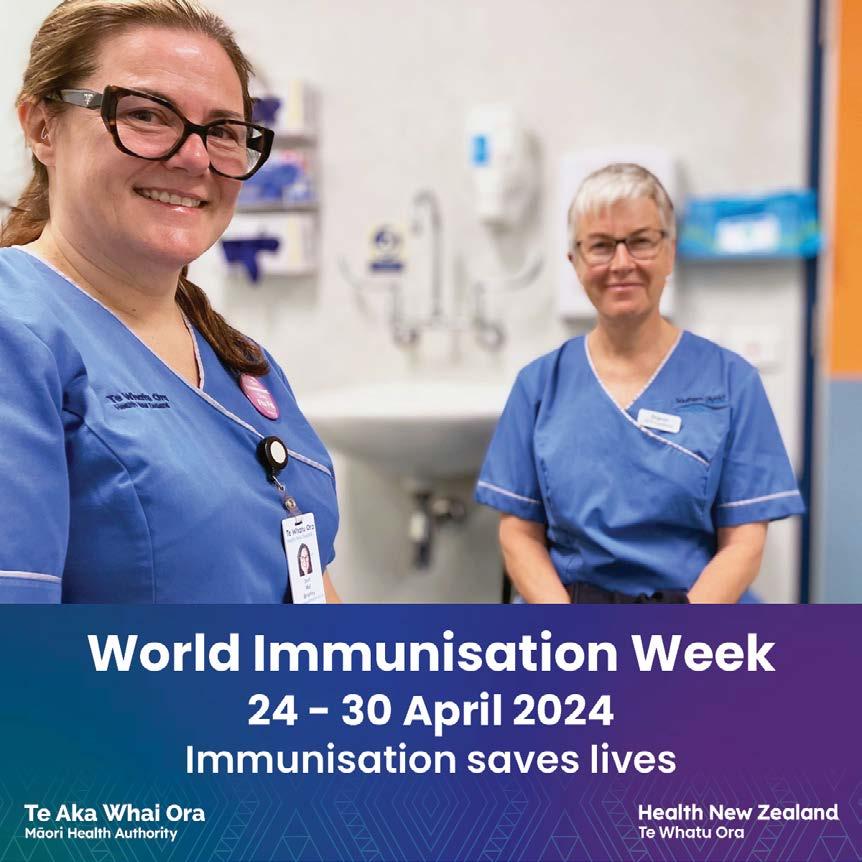
› Immunisation saves lives. Immunisation stops people from passing diseases to their whānau, particularly to those who may not have strong immune systems.
› We desperately need higher rates of immunisation to help stop children and adults from getting really sick and having to go to hospital this winter.
› Vaccines on the National Immunisation Schedule are free for all children and young people under 18 in Aotearoa New Zealand. It does not matter what their visa or citizenship status is.
› Flu vaccines are free for many people, and the latest COVID-19 vaccine is free for all eligible people from 6 months of age.
› No matter where you live in Aotearoa New Zealand, we are working hard to improve equitable access to funded immunisation.
› Together we are working toward achieving our national health targets and protecting our tamariki from preventable diseases with 95 percent of children fully immunised at 24 months of age.
Find out more about immunisation and watch a video answering common questions at https://www.cph. co.nz/immunisation-week/. Information about immunisation is also available on the Health New Zealand | Te Whatu Ora website: Immunisations | Health Information and Services
Read more about an innovative immunisation clinic for children on page 21


Ten white crosses will again be installed on the Nurses' Memorial Chapel lawn this Anzac Day, commemorating the South Island nurses who lost their lives at sea during World War I.
The chapel, on the grounds of Christchurch Hospital, was built in 1927 to honour the 10 nurses who died when the troopship Marquette was torpedoed by a German U-boat in the Aegean Sea in October 1915.
As part of Anzac Day events, a commemorative display will also be held in the Christchurch Hospital Chapel, over the following week.
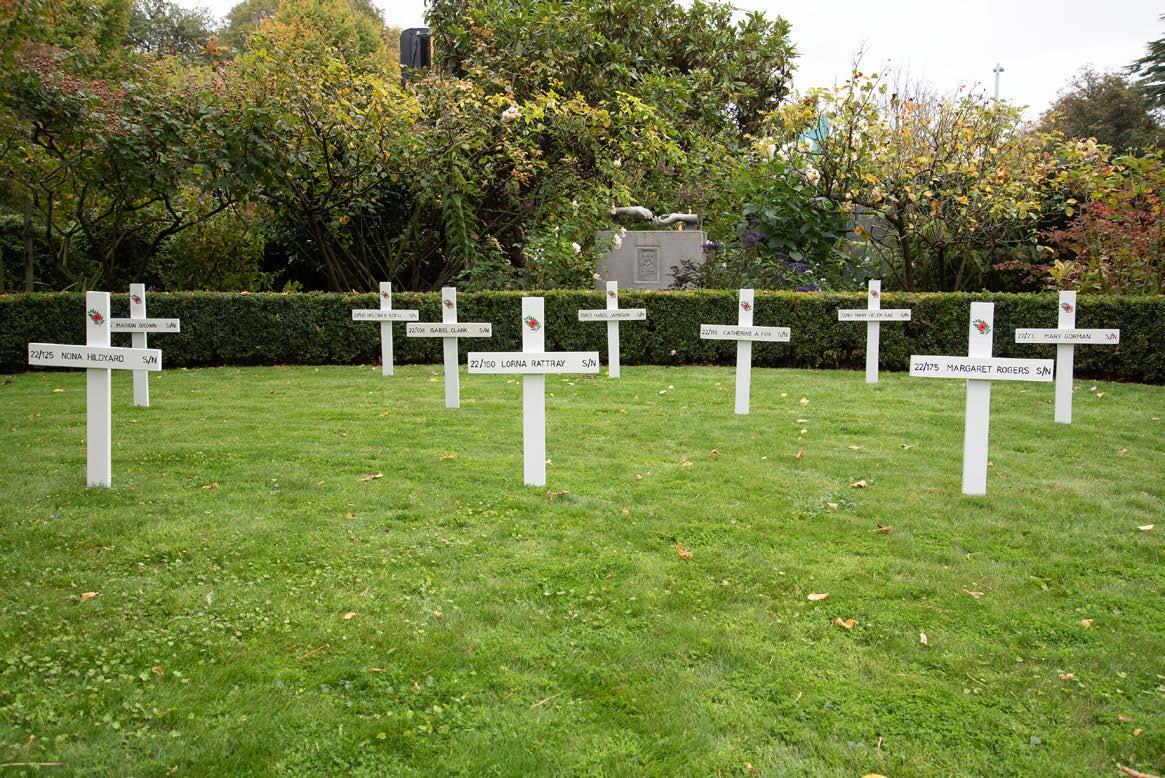
White crosses - caption to come
Kaimahi and whānau are invited to submit any poems and reflection to the display. If you have any please email these to donna.reid@cdhb. health.nz so they can be added to the display.
You can read the story of the 10 white crosses here


Are you making the most of the Anzac Day holiday with a long weekend? There are plenty of ways you can access health care and advice if you need it during the holiday period. Here’s how to get help over the long weekend:
› You can find local health information at healthinfo. org.nz, as well as general health information and advice online at info.health.nz or Healthify.
› If you prefer to kōrero: call Healthline on 0800 611 116. Interpreter and NZ Relay support is available. They can also help you find health services if you’re away from home.
› A rural after-hours clinical telehealth service is available. Call 0800 2 KA ORA (0800 252 672)
› For tamariki under five, call Plunketline on 0800 933 922 for free health advice.
Your local pharmacy can give advice on medicines and common issues like coughs and colds, bladder or eye infections, minor cuts and grazes, emergency birth control. They can suggest over-the-counter treatment, fill prescriptions, and some can give immunisations.
www.Healthpoint.co.nz also provides up-to-date information about healthcare providers (GPs, pharmacies, social services, hospitals, testing and vaccination sites, mental health support) and their opening hours and services.

In an emergency dial 111. Hospitals across the motu will continue to provide critical and emergency care 24/7 as usual.


Jo Kennedy has been recognised and designated as a Physiotherapy Specialist – one of only 18 in New Zealand, and one of nine whose scope is musculoskeletal.
Jo holds a 0.5FTE (full-time equivalent) fixed term ‘Expert’ designated position in Christchurch Hospital’s Emergency Department team, as a Primary Care Physiotherapist. She has a particular focus on spinal injury and treatment.
The Physiotherapy Board of New Zealand welcomed Jo as its newest specialist on completion of all her requirements which took over three years to achieve. She undertook the role of a Specialist Physiotherapist Registrar, which has involved treating highly complex patients under the supervision and mentoring of an existing specialist. This culminated in submitting her portfolio which was assessed by the board and an AUT (Auckland University of Technology) professor.
Jo received the following commendation from the board on her excellent and comprehensive portfolio.
“Jo has presented a very robust portfolio with clear evidence capturing all the roles. She has undertaken significant mentorship with another physiotherapy specialist, and this has enhanced her pathway to become a specialist.
“As stated in her supportive letters she has essentially been operating at this level for some time.
“She is innovative, knowledgeable, reflective and cares about good patient outcomes. Her ability to be measureable and objective is clearly demonstrated, and she is leading change to benefit the patients.”
Jo, who did a biology degree then studied physiotherapy in Manchester before completing her Masters’ degree at Kings College in London, says she has always been driven by an appetite to know more and improve her skills.
“What I enjoy most about physiotherapy is unpicking the complex puzzles that patients bring and tailoring treatment for them. I constantly work to refine this process.”

Physiotherapist Specialist Jo Kennedy
Allied Health Team Leader, Physiotherapy Benn Dickie says achieving her Physiotherapist Specialist designation is a significant undertaking and has taken a lot of hard work.
“Jo has completed this work in her own time, at her own cost and personal sacrifice to benefit our community and the Physiotherapy profession. Jo is a brilliant member of our ED Physio and Allied Health team, and we value the knowledge, experience and skills Jo shares with us all.”
Jo worked as a research co-ordinator for a neurosurgeon at the National Hospital for Neurology and Neurosurgery in London where her focus was on quality of life for patients who had undergone spinal surgery for metastatic cancer.
In 2016, she took an Advanced Practitioner role in South London. The extended scope role involved triaging patients with orthopaedic and spinal problems.
“Mostly looking for red flags and referring to surgery as needed. I loved being back with patients,” she says.

Jo emigrated to Aotearoa New Zealand in 2018 and in 2021 began her clinical internship.
“I went into it with specialism in mind. I’d had extended scope in the UK, and I wanted to do more here, then in 2023 I started a role as an ‘Expert’ physio in the Christchurch ED.”
Jo says she would like to see an increase in advanced practice in New Zealand and plans to start a PhD in the next two to three years.
Physiotherapy specialists are expert physiotherapists who have advanced education, knowledge and demonstrated competence to practise beyond the level of an Advanced Practice Physiotherapist in a specified vocational area. They provide person and whānau-centred healthcare to manage the most complex, difficult or critical patient presentations in their area of practice, often as a point of expert review, opinion or referral. Physiotherapy specialists demonstrate leadership in consultancy, education and research and work collaboratively with the physiotherapy profession and within the wider health system. They use their physiotherapy knowledge and expertise to actively participate
and take a leadership role in professional activities, including local and national strategy and policy development.
Requirements include:
› A Masters’ degree that is relevant to clinical physiotherapy practice
› Minimum of six years FTE clinical practice, four years of which must be in the nominated specialty area of practice
› A portfolio assessment, the Board’s assessors examine the applicant’s portfolio and measure it against the specialist competencies


This week is Administrative Professionals Week –a chance to say thanks to all the administrators and administration teams working in Health New Zealand | Te Whatu Ora.
Our administration stars – booking administrators, ward clerks, receptionists, telephonists, secretaries, medical secretaries, payroll officers, clinical coders, clinical records officers, personal assistants, data entry operators and so many others – play a vital role in managing the operations of Health NZ.
In our hospitals, clinics and local, regional and national offices, they support our teams to deliver high-quality care to patients, and better health outcomes for all New Zealanders. Tēnā rawa atu katoa, thank you to you all.
On the following pages we celebrate just a few of the many administration stars working in Health NZ
Waitaha Canterbury, who were nominated by their colleagues and peers.
Administration Manager for the Combined Christchurch Campus Kay Strang says these stories validate the critical contribution our admin teams make to the smooth running of our health services day-in and day-out.
“They also show their drive and passion to ensure our patients have the best possible customer service experience while they are in our care.
“It’s interesting to note the common themes around what would happen in a hospital without admin: ‘we would be completely lost, no clinics would get booked, no letters would get typed, it would all fall apart!’”
“Please take a moment to stop by and thank the admin folk in your team(s) this week.”
What do they do?
Administrative support for Respiratory Services, Sleep Services, Respiratory Physiology Laboratory and CardioRespiratory Specialist Services (CRISS).
Why are they important to the organisation?
They keep everything running! Without them we would truly fall apart, they make sure our patients don’t get lost in the system or slip between the cracks – they help the clinicians to sleep at night knowing that nothing is missed. Despite the heavy (and at times overwhelming) workload, they flex and prioritise to keep the waka afloat, always with a laugh and a smile.

Respiratory Administration Team members, from left, Administration Supervisor Shaye Petterson, Respiratory Lab Administrator Patti Renaud, Administration Supervisor Kim Rattray, Booking Coordinator Catherine Ratahi, Sleep Unit Administrator Tina Perry, Medical Secretary Marie Campbell, Respiratory Lab Administrator Debbie Peters, Sleep Unit Administrator Neha Gosavi, Medical Secretary Linda Burrows. Not pictured, Administration Team Leader Andrea Burrows, Booking Coordinator Jyoteshna Naidu, CRISS Administrator Nicki Falgar
What are they most liked or appreciated for?
Their ready smile and willingness to help despite the constant high workload. Their ability to communicate and work together as a team to get things done, their bright ideas and innovations that make everything work better.
What would happen without them?
We would be completely lost, no clinics would get booked, no letters would get typed, it would all fall apart!
Nominated by Respiratory Consultant Rachel Wiseman, Respiratory and Sleep Physicians Josie McCabe, Michael Hlavac and Adrienne Edwards

“The team has gone through a number of major changes in processes and team members in the last year and this has resulted in much greater efficiency and a significant reduction in Did Not Attend rates in clinic.”
“In the face of multiple challenges (staff sickness, unprecedented referral numbers, changing health system) they continue to work as a cohesive team with a level of professionalism which is quite extraordinary.”
“The Respiratory admin team are awesome. They are a great team and go above and beyond the hours they are paid.”
What do they do?
They support outpatient and inpatient physio services – helping manage patient referrals and outpatient physio appointments. We have five different physio outpatient services that run out of the department - Hand Therapy, Musculoskeletal Therapy, Respiratory, Women’s Health and Paediatric Outpatient teams. Each service does things a little bit differently, but the admin team help support the patients and the physios in the administration side of keeping these services running.
Why are they important to the organisation?
Their mahi means that our clinicians can focus on delivering the best service to our patients.
What are they most liked or appreciated for?
Their willingness to adapt to new changes and challenges, to remain patient-centred in their work, and their sense of humour.
What would happen without them?
Without the team, patients would be waiting much longer to see a physio, they would frequently be lost in follow up, and they would frequently be lost on the hospital campus!
Nominated by Physiotherapist Matilda Carrell

“We have a fabulous team of admin professionals that work here. They do a wonderful job of catering to all our different needs and supporting us.”

What do they do?
Urology Clinical co-ordinators is a small team comprising Mima Stoppel, Joanna Johns, Nicky Brown, Hannah Wootton. They are responsible for the referrals to the Urology Department, maintain the Outpatient waiting list, and look after clinics for the department. They book the Consultant clinics, registrars, Prostate Biopsy, follow-up clinics, Flow and residual, Trial of Void, BCG (Bacillus Calmette-Guerin) treatment, Flexible cystoscopy, Urodynamics, and Botox, to name just a few.
Why are they important to the organisation?
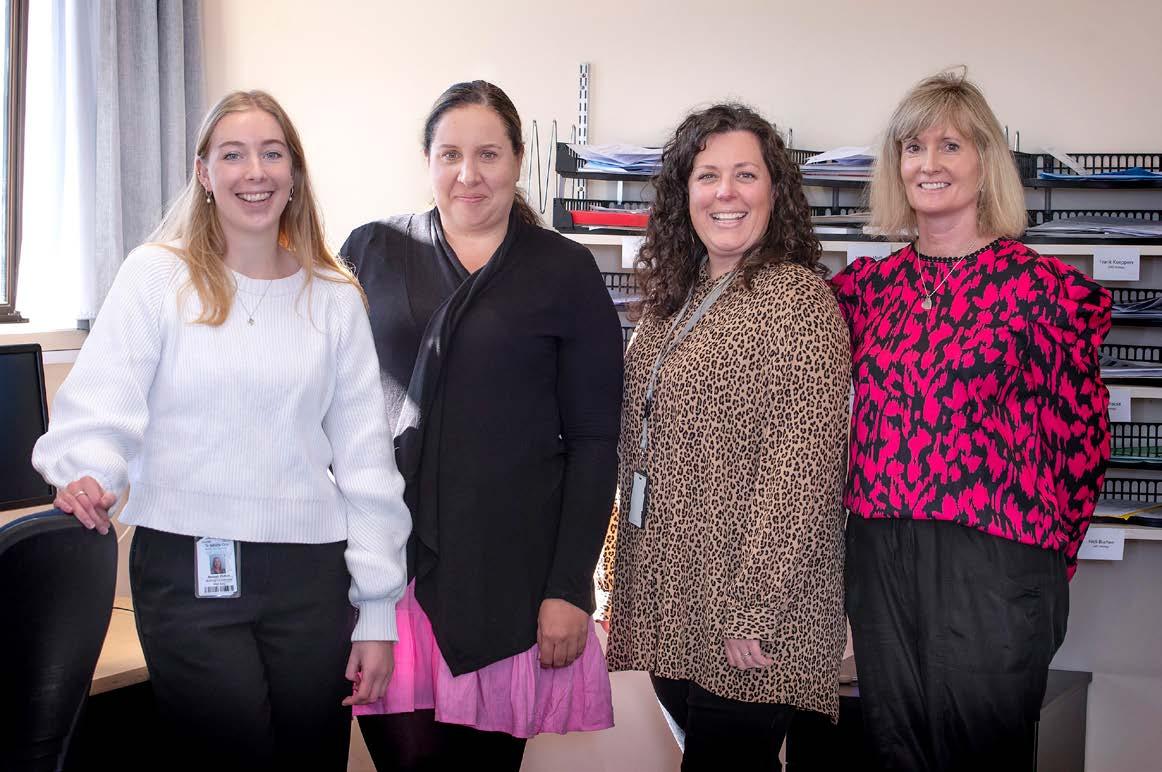
Without dedicated administrative teams the hospital would not operate. The team performs under stressful, time sensitive situations to ensure clinics are full and run smoothly.
What are they most liked or appreciated for?
Putting in the effort to make sure that each and every clinic is filled, and trying to ensure that patients are not waiting longer than necessary to be seen. Due to capacity issues this is no easy task.
What would happen without them?
The Urology Department would come to a standstill, as would all departments in the hospital, if they did not have dedicated administration teams to help to keep the wheels turning.
“Some weeks they may have an extra five to eight clinics to arrange – at the last minute, with very little notice. Patients are hard to get a hold of, and may need pre-clinic tests, and I am amazed that they manage to fill most of the clinics.”
“Well done to them, they are definitely administrative professionals that deserve recognition.”
Nominated
Michelle Weir
What do they do?
The CAF Access Team includes the CAF Link and CAF Emergency functions. They answer all incoming calls and direct them to where necessary, and enter referrals into the computer system – more than 4,700 in 2023. They type up assessments, complete follow-up letters to GPs and whānau, enter stats for team members, compile reports, take minutes for business meetings, ordering of supplies needed … plus other tasks on an ad hoc basis!
Why are they important to the organisation?
Without them the team would not be able to function efficiently and smoothly. They uphold the five pillars for Specialist Mental Health Servies and the organisation, specifically Mahi Tahi-Pillar 3, Manaakitanga Pillar 4 and Whanaungatanga -Pillar 5.
What are they most liked or appreciated for?
The way they work with and as part of the team, and their never-ending respect for rangatahi and their whānau who have been referred. Their ability to continually work alongside a variety of staff, adapt to teams’ differing styles, and their approachability at all times, no matter how busy they are.
What would happen without them?
We would not be able to move forward with the huge volume of work we do. Clinical staff would have to do these tasks if we did not have our admin team. This would then take away time from being able to attend to the clinical mahi we do.

Nominated by Clinical Manager CAF Access Team Tisha Bradley
“The CAF Access Admin Team are absolutely awesome. They are the heart and soul of the team and without then we would be lost, big time!”
“They all do an amazing job, go above and beyond to support the other team members and the rangatahi and their whānau who are referred and come through our team.”

What do they do?
Sigrid is responsible for ensuring our patients at home on dialysis get all their correct supplies. She is the point of contact for patients as they arrive in the morning for their dialysis, meeting them and helping them to their room. Sigrid orders supplies for the peritoneal dialysis nurses, and any other equipment that may be needed in the department. She books patients in for procedures in Nephrology, ensuring patients are booked to the appropriate venue keeping the patient and staff informed. Sigrid knows our patients well and will also organise for stock no longer required to be collected. This can be a happy or sad occasion as a patient may get a renal transplant, or pass away.
Why are they important to the organisation?
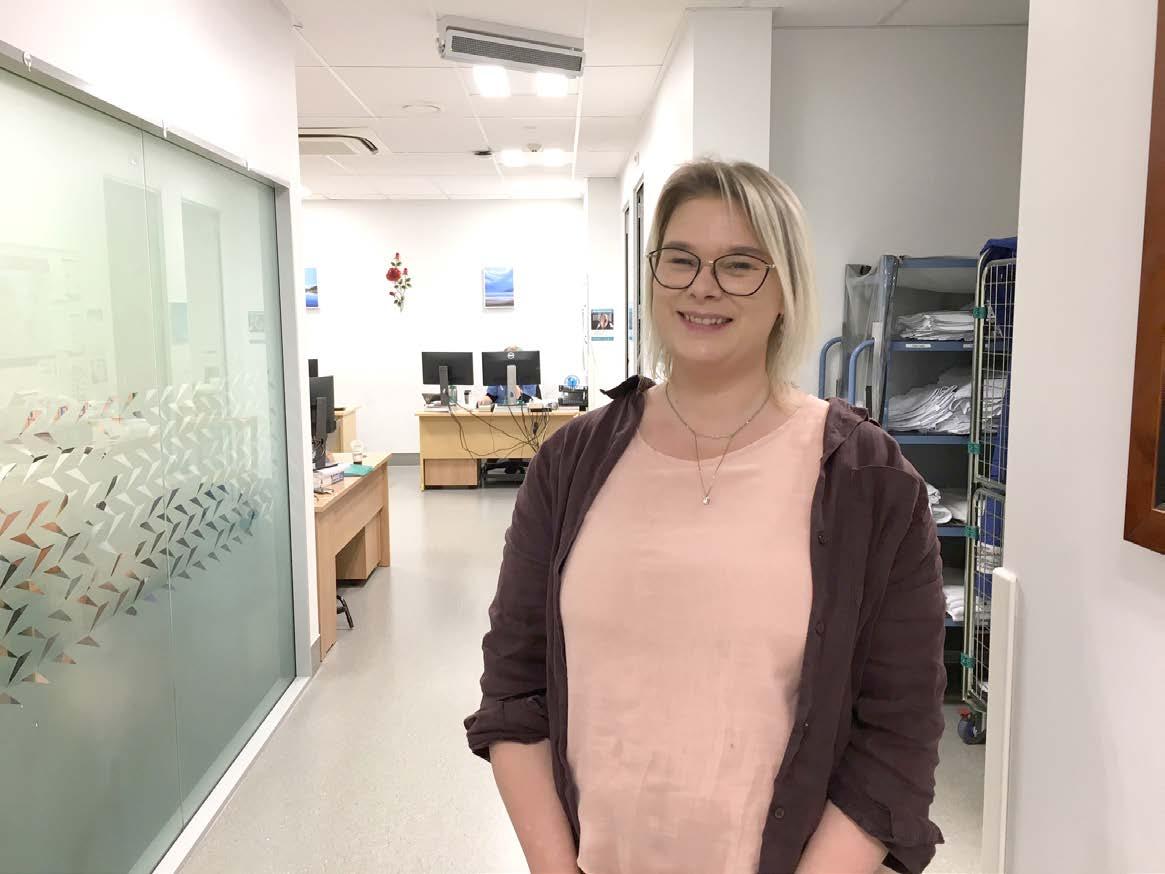
“Sigrid is respectful and well-liked by the patients and families she deals with.”
Sigrid keeps our service running smoothly. She is aware of the costs of dialysis and ensures patients are not overstocked, and will think outside the square to ensure that stock is not wasted if no longer required by a patient.
What are they most liked or appreciated for?
Her everyday work ethic. She quietly goes about her job, completing all her work and offering to help out if she has spare time.
What would happen without them?
While we can manage for short-term leave, the service would likely grind to a halt. Stock wouldn’t be ordered, invoices wouldn’t be checked as thoroughly, and accounts would be delayed. Patients would not have a person to ask as they arrive. The nurses would have to take on this role, as there is no cover for her.
Nominated by Charge Nurse Manager Wendy Cuthill
What do they do?
'Angie' McKendry is a casual administrator, and provides secretarial support for two consultants and an Achilles tendon clinic. She started in orthopaedic outpatients on a casual basis prior to Christmas.
Why are they important to the organisation?
She is an incredibly hard worker, not only with her own work but in helping others. She’s the first person to put her hand up when someone is struggling.
What are they most liked or appreciated for?
Her work ethic and her bubbly personality. She’s always happy and upbeat and cheerful. The patients love her, because she goes out of her way to sort things out for them, and will come out and chat to them if they’re here in clinic. She has bright pink hair, ridiculously bright earrings and bright dresses!
What would happen without them?
Without her, the place would go back to its usual doom and gloom. The patients wouldn’t get the care they deserve, nor would all the little extra things get done.
Nominated by Head Receptionist Orthopaedic Outpatients Tracy Galbraith

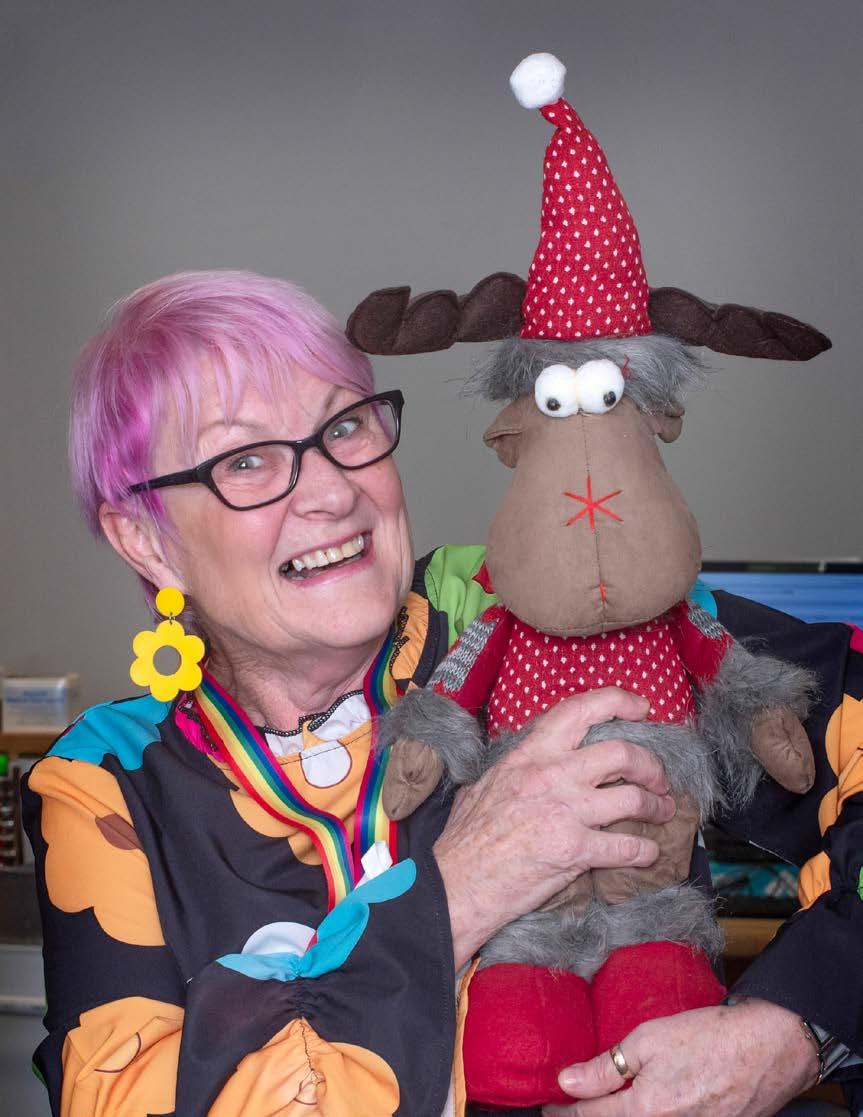
“She’s bright and bubbly (not just because of her pink hair and colourful clothing), fabulous with patients and staff, works really hard, and is an eager beaver when it comes to helping out.”

Emeritus Professor Robin Fraser ONZM, BSc (Med), MB BS, PhD, MD, FRACP was both an institution and a legend at the University of Otago, Christchurch, a clinical researcher and teacher of huge passion, kindness and regard whose legacy is profound - a man who embodied the line “hail fellow, well met”.
The anatomical pathologist began his career at the former Christchurch School of Medicine and Health Sciences at its genesis 50 years ago, influencing the careers of generations of medical students and researchers. His own research passion focused on the “liver sieve” (co-discovered with Professor Eddie Wisse from Vrije University, Brussels), which he vehemently championed.
Born in Australia, Robin graduated with both Bachelor of Medicine and Bachelor of Science (Hons) at the University of Sydney, beginning his working career in 1961 as a country GP in Coonabarabran, rural NSW.
The practice he joined was one of Australia’s very first group “bush” practices, a small team with an all-hands-on-deck mandate.
He remembered performing an “exchange transfusion” on a newborn rural baby with extreme jaundice and haemolysis, recalling how the local butcher saved the day, volunteering to be the RH negative blood donor due to the nearest base hospital being many miles away.

His early interest in medical research led him down the field of lipoprotein metabolism for his PhD at the Australian National University.
He then undertook a postdoctoral position at the University of Chicago before returning as a Senior Lecturer at the University of Sydney.
Robin’s shift to Christchurch came in 1974, when he accepted an Associate Professor appointment in the then-named Department of Pathology at Otago University’s newly established Christchurch School of Medicine, alongside a Consultant Pathologist position at Christchurch Hospital.
Added to his anatomical pathology and coroner’s pathology work, he dedicated himself to teaching and research, expanding on his earlier interest in the metabolism of dietary lipids, fatty liver disease and liver cirrhosis, and diabetes.
At the hub of this research was the concept he pioneered, which he coined the “liver sieve”.
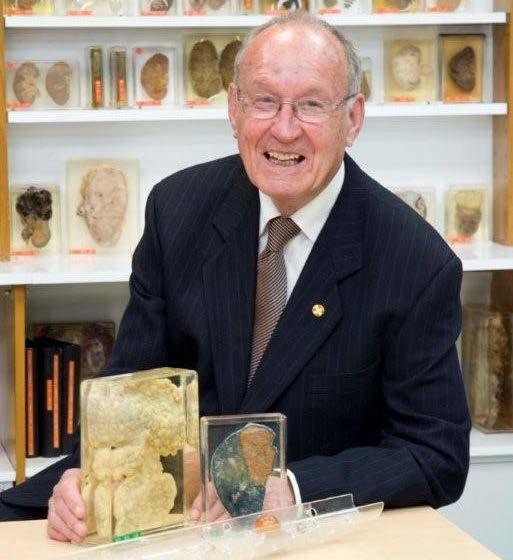
Formed by specialised cells in the liver, the liver sieve is a microscopic filter that regulates entry of lipids and other substances into the liver. The discovery helps explain how our body controls the metabolism of food fats, including cholesterol. This work was truly innovative, leading Robin to author and coauthor hundreds of published studies in esteemed medical journals, as well as national and international collaborations with research teams at some of the world’s noted universities.
You can read the rest of Robin’s obituary, written by University of Otago Media Communications Advisor Lorelei Mason, on the university’s website here. The University of Otago, Christchurch, has plans to hold a Memorial on campus in October to honour Robin, including the installation of a plaque marking “Robin’s Seat”.

What does your job involve?
Providing emotional and practical support to patients and their whānau. Facilitate whānau hui, lots of documentation and lots of korero with other disciplines on the wards – which also includes advocacy for our patients if their voices get lost.
What pathway got you to this job?
A mental health crisis that led me to dig deep and really determine my passions and where there is a passion and career crossover – and that got me to Social Work.
What advice would you give someone keen to enter your field?
Be aware that you will be facing emotional triggers and seeing some dark stuff, but when you make a difference in someone’s life (in an acute hospital setting) however long or short their admission is or your interaction is, that is the true reward. True human connection gives you the warm fuzzies.
Who inspires you and why?
First and foremost, my mother. She has always been my biggest supporter, cheerleader, therapist, baker, babysitter etc. Mum led her life by giving service to others, providing support for others and I found it a natural progression for me and that has also been passed onto my daughter. My mum’s strength through adversity and her patience and generosity of heart will forever inspire me, despite vascular dementia taking it all away from her and us (whānau) now.
What do Waitaha Canterbury’s values (Care and respect for others, Integrity in all we do and Responsibility for outcomes) mean to you in your role?
Personally, and professionally, responsibility and integrity are very important and entrenched in my Social Work practice whether interacting with other staff or patients. Care and respect are part and parcel of being me and a social worker. I believe that empowering and encouraging others, including patients, to speak up allows their voice to be heard, but each individual is different and sometimes my voice is theirs for the duration of our interaction.

I believe that sometimes the medical model gets in the way of actual interaction with patients and their understanding of what is going on with their health. We need to remember that the technical language we use is something we studied and have grown to know and that isn’t necessarily the same for our patients. I just care for people, and believe all patients deserve our respect at all times, no matter their background/ circumstances. If we can remember that each individual is a human being with a wider network of experiences and circumstance, and not just an injured limb or infected heart or whatever the ailment may be, then we can easily uphold these values.
If you could be anywhere in the world right now where would you be and why?
On a beach, relaxing with my daughter – preferably in Hawaii.
Who would you want to play you if there was a movie made about your life, and why?
Melissa Mccarthy – we have a similar curvy figure, and she is the right combo of class and humour, never mind that we have the same first name.
What are some of the ways you and your whānau show their aroha/love for our planet?’
We use reusable glass bottles for our cleaning products and hand soap at home, from a New Zealand company which provides to our economy as a country.
What are your hobbies/interests outside of work?
Spending time with whānau, learning about my whakapapa, increasing my use of reo, learning more reo Māori, listening to music and spending time with friends.
If you would like to take part in this column or would like to nominate someone please contact Naomi.Gilling@cdhb.health.nz.


My husband and I would like to thank the staff. You were all absolutely amazing, and kind, during our stay with our daughter, you made our stay just amazing especially Midwives Melissa and Paula and Catering Assistant Paula. Thank you for everything, we will never forget the compassion and care you showed us.
A huge thanks to everyone involved in looking after my wife and I following us being involved in a traffic accident. My wife passed away at the scene whilst I was trapped in the vehicle. I was transported by air ambulance to ED and my wife followed by ambulance to the morgue in Christchurch. I was in a very bad way and received two operations in my first week on the ward, on level 4 I think. Karen was the ward manager. For the first 10 days I was very dependent on the nursing team. Everyone from the cleaners to the surgeons were amazing and so consistent in their care and consideration for myself and my teenage children and brother and sister-inlaw during my stay. We were able to use the chapel for my wife's funeral which was a true blessing due to my lack of mobility. I was flown back over to Greymouth via flying doctors after three weeks and spent another two weeks on the ward there. I am now up on crutches and starting to walk. I just wanted to say a huge thanks to the amazing team you have. I would not be mending the way I am without your amazing initial care.
Emergency Department (ED) and Ward 10, Christchurch Hospital
It was extremely busy, actually insanely busy. I have nothing but praise and admiration for the hard working, cheerful, helpful, and understanding staff, especially Josh who was the nurse who saw me through the night. I was then transferred to Ward 10 and once again the staff (Taylor) and all of them on the ward (doctors, cardiologist, Radiology) were so wonderful. It was a scary experience for me and I'm so grateful to these wonderful people.
Ward 24 and Ward 16, Christchurch Hospital
On behalf of my mother, we would like to take this opportunity to give our heartfelt thanks to everyone who cared for her.
Department of Anaesthesia, Christchurch Hospital
Anaesthetist Tamsin, her nurse and receptionist for my anaesthesiology appointment were fabulous! A real credit to the team.
ED, Christchurch Hospital
Very calm and professional, thank you.
Ward 18, Christchurch Hospital
I couldn’t ask for better nurses. In my time of need on my first night on the ward two kind-hearted nurses helped me with a scary procedure which I had never faced in my life. I would like to thank you from the bottom of my heart. I will never forget this. Thanks heaps.
ED and Ward 10, Christchurch Hospital
I would like to say a massive thank you for the care I have received from when I arrived in ED through to my discharge. I so appreciate how much was done to ensure I can live life again. Big thank you to all the nurses, including Ruth from Cardiac. Thank you to the incredible surgeon who placed the stents and his team. Ngā mihi nui.
Bone Shop, Christchurch Hospital
What an amazing experience yet again. Amazing service and care in Ortho Emergency and now the Bone Shop. Thank you to the volunteer who took me in a wheelchair from the drop-off area to the Bone Shop, this took the pressure off my husband to get a carpark. From reception to the plastering and X-ray, it was done in 30 minutes – excellent. The doctor was so lovely and kind. Such amazing care, all so professional and felt valued by the team. Thank you for everything.
ED, Christchurch Hospital
Staff very nice and helpful.
Sam, Ward A8, Christchurch Hospital
Nurse Sam is incredible!
Ward A3, Christchurch Hospital
Absolutely fantastic staff.
Vascular Surgery and Ward A8, Christchurch Hospital
The staff, Claire, Melissa and Rene were so professional and personable and made my husband and I feel at ease and welcome. Thank you, guys – great people skills and great nursing skills.
ED and Ward B3, Christchurch Hospital
Thank you to the amazing team who looked after me. Everyone was professional, very pleasant and helpful. ED was ‘chocka block’ but staff were still smiling and delivering exceptional service. The surgical team gave a quick assessment and presentation of the plan of delivery. The follow-up was awesome, and the nurses were amazing. Thank you for a great job, well done everyone.

Eye Outpatients, Christchurch Hospital
Thank you to the lovely nurse and technician and the kind receptionist – grateful for all her loving professional care and kindness.
Orthopaedic Outpatients, Christchurch Hospital
Compliments to the team working at The Bone Shop. The receptionist, nurses, and radiographer were all friendly, respectful, and efficient. In addition, I wish to acknowledge the exemplary care I received from Dr Amy O'Neill. She has a wonderful bedside manner and, after examining me, took the time to thoroughly explain the next steps. I hope she realises the positive difference she makes to her patients. I am very grateful.
I had to see Dr David in the acute eye clinic recently. He was quick to see me but also very thorough in assessing me and explaining my eye problem. Thank you David for your outstanding care.
I recently had maxillofacial surgery carried out by Andrew Botha and his amazing team. Today I met with him for a post-surgery consultation. Dr Botha gave very detailed explanations of what had been done and showed me the images of my repaired cheek bone. I find this very empowering, being treated as capable of understanding the damage, the plan and the results is perfect for me; I felt I was an active partner in the whole experience. He was also completely honest about the issue and that it may never recover. This makes it so much easier to accept the final outcome: a realistic assessment and no false hope. Dr Botha is engaging, personable, professional and clearly a brilliant surgeon in a very, very specialised area. We need to make sure we keep him! Thank you, Dr Botha. I am extremely grateful to have been under your scalpel.

A blessing was held at Christchurch Women's Hospital to introduce two new Cuddle Cots, generously provided by Solfrid and Mark Gillman in memory of their beloved baby, Tuva.
Māori Chaplin Maui Stuart held the blessing and honoured the family for donating the greatest gift to families of stillborn babies – time to spend with them.
Cuddle Cots offer solace to parents navigating the profound loss of their pēpi. When faced with the tragedy of stillbirth, these specially designed cots provide a cool environment, allowing families to embrace cherished moments with their child without the constraints of time.
Solfrid and Mark's own journey through grief inspired them to ensure that no family would miss the opportunity to create precious memories with their baby.
Their initiative, fuelled by their own experience of spending invaluable time with their baby at home using a Cuddle Cot, sparked a wave of generosity in their community.
Through a heartfelt fundraiser, including Solfrid's courageous act of shaving her head, the response was overwhelming. Thanks to this outpouring of support, two additional Cuddle Cots have been donated to Christchurch Women's Hospital.
This will ensure that every family facing such heartache can avail themselves of the comfort and closeness these cots offer.
The addition of these two new Cuddle Cots, bring the number at Christchurch Women's Hospital to three, ensuring that families can both utilise them during their hospital stay and take them home when needed.
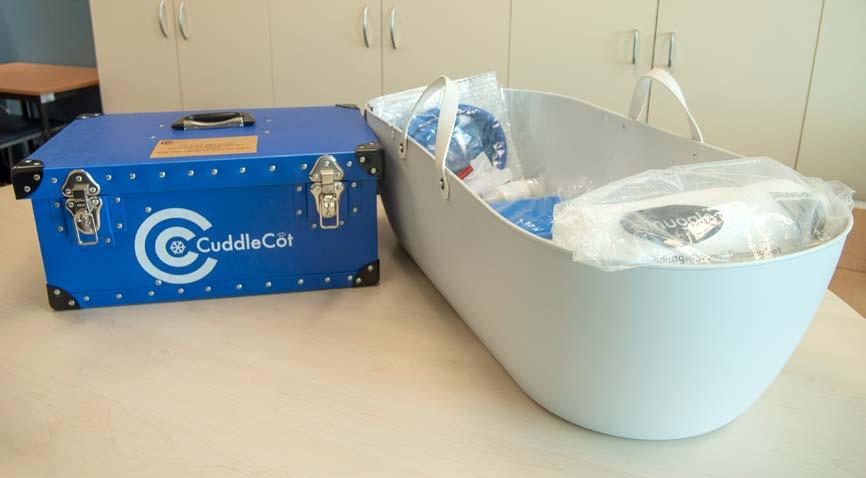

Midwife and Perinatal Loss Specialist, Di Leishman says the Cuddle Cots provide more than just a place for our babies to rest.
“They afford us the precious gift of time—time to bond, to cherish, and to honour the life that was so eagerly anticipated. I am immensely grateful to Solfrid and Mark for this invaluable resource.”

An innovative partnership between Public Health Nurses and Paediatric Outpatients at Christchurch Hospital is giving improved access to vaccinations for at-risk children.
Public Health nurses (PHNs) are working with Paediatric Outpatients (POPD) to offer Flu vaccinations for tamariki who are at higher risk of getting very sick, including those with longterm medical conditions along with any outstanding scheduled childhood immunisations.
Charge Nurse Manager Public Health Nursing Kate Parfitt says the collaborative approach means up to 120 tamariki could receive 184 vaccines over six days, across 12 Clinics at POPD.

“This initiative reflects the focus on improving tamariki immunisation rates, and a strong emphasis on innovation and partnership in the PHN Service. This has seen a number of new initiatives for getting tamariki in Waitaha up to date with vaccinations.
“The Public Health Nursing Service is also working towards checking vaccination status for all clients they interact with, to offer overdue immunisations in various environments – clinic settings, school, marae or home – including any whānau members due for immunisation,” says Kate.
Charge Nurse Manager Paediatric Outpatient Department Fiona Kennedy says having the public health nurses come in to vaccinate for flu and overdue childhood immunisations is hugely beneficial for our tamariki and their whānau.
“The children attending Day Stay for investigations and procedures are extremely vulnerable health
wise, and to offer a service which will protect them on-site is valuable.
“A lot of the children who come to Paediatric Outpatients attend regular health appointments here as well as in the community. To offer this vaccination while they are here already having an appointment is more accessible and easier for them. Having their paediatrician present to advise having it is reassuring for the parent/child.
“The public health nurses are experienced vaccinators, and their calm manner and approach makes for a stress-free experience. We’ve had the St John Therapy dogs, who have been here for their usual support session for children, accompany those tamariki who wish, to the clinic to help with vaccination.”

Public Health Nurse (PHN) Kirstin Lambie has seen first-hand the benefits of vaccination for children in preventing and reducing serious illness.
Kirstin has been a PHN for 10 years and was a Paediatric Nurse in Ward 21 before that. She has experience delivering school-based vaccination clinics for year eight children, and for under-fives, as well as other vaccinations.
“Vaccinations for children are so important. The vaccines we are giving, for HPV (human papillomavirus) MMR (measles, mumps and rubella), varicella (chickenpox), for example – those diseases are still out there and some can be fatal for children, so it’s really important to protect them.
“Uptake at these young ages is important, and we are seeing good results including a decrease in cervical cancer and seeing children better protected from these diseases.”
Kirstin says she’s enjoyed being part the event at Paediatric Outpatients, as well as others such as a recent clinic at the University of Canterbury which was very successful.
Part of her role, Kirstin says, is providing reassurance to people and whānau who may have questions about vaccinations.
“We are seeing more and more people with concerns. We listen to their point of view and use our knowledge of vaccination to respond. We offer support and redirect them to appropriate information. If they are still hesitant we encourage them to research information from trusted sites, or seek support from their General Practice or Practice Nurse.”
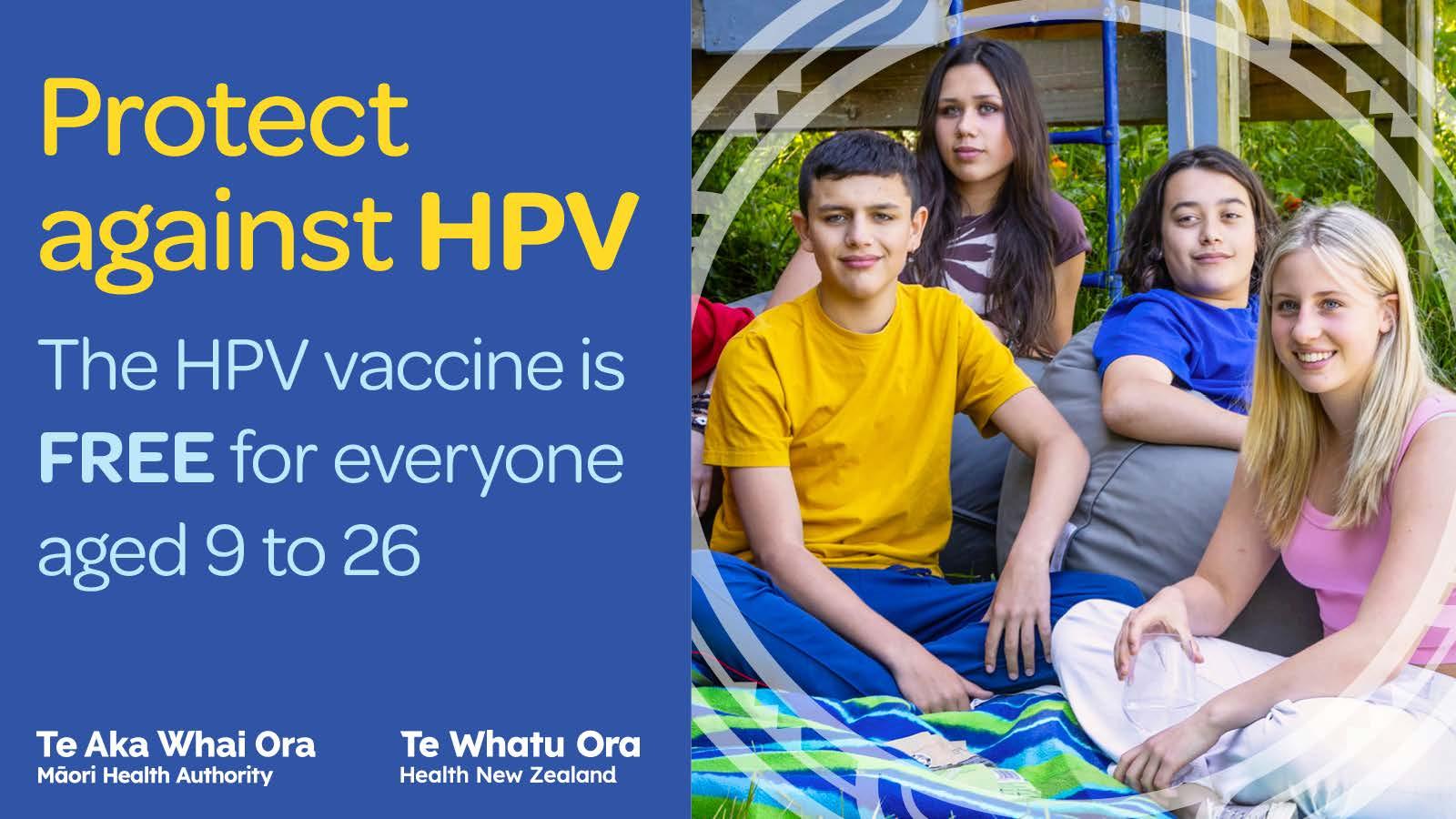

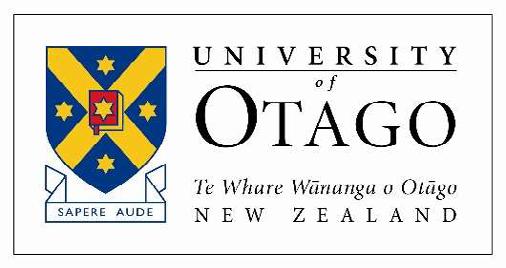
Date/Time: Tuesday, 25 June to Thursday, 27 June 2024
Start time: 8:30am-4:30pm
Participants must be able to attend all days in full and ensure travel arrangements don’t require late arrival or early departure.
Venue: University of Otago, Christchurch Simulation Centre Level 1, 72 Oxford Tce, Christchurch
Facilitators: An interprofessional team including UOC Simulation Centre staff and invited guests.
Open to: Health Professionals with an interest in simulation-based education, all disciplines. While those with no prior experience in simulation will be able to manage the course it is designed for individuals already working in simulation.
Cost: $1,900 + GST per person (catering included) 50% discount for University of Otago staff
Focus and format of the workshop: includes active participation and practise of all components of simulation-based education as well as presentations and discussions of both theory and practice.
educational underpinnings of simulation-based education
principles and practice of scenario writing
best practice in SBE including focus on safety
approaches to debriefing
orientation to the human simulators SimMan3G Plus / SimJunior and the simulation environment
developing and delivering/running a scenario
participating in scenarios
reviewing scenario development and delivery practice
debriefing a scenario
reviewing debriefing practice (debriefing the debrief)
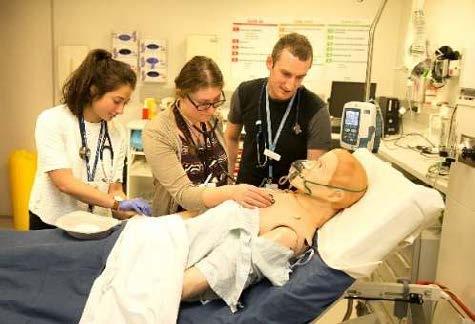
Numbers are limited to 20 participants. Places will be allocated on a ‘first–in’ basis and only confirmed once payment is received.
For more information - email simcentre.uoc@otago.ac.nz
This is an approved College of Intensive Care Medicine (CICM) CPD course.


Come join us for an evening of talks and hear how research is changing the way we do things. Registration essential.
Wednesday 15th May, 5.30pm – 7.30pm Manawa Foyer, 276 Antigua Street.
For more information on our speakers and their topics, visit our website www.healthprecinct.org.nz Presented







Administrative Professionals
Week: 21-27 April 2024
Our Administrative Professionals play a vital role to help deliver high-quality care to patients, and better outcomes for all New Zealanders
Tēnā rawa atu katoa, thank you to you all